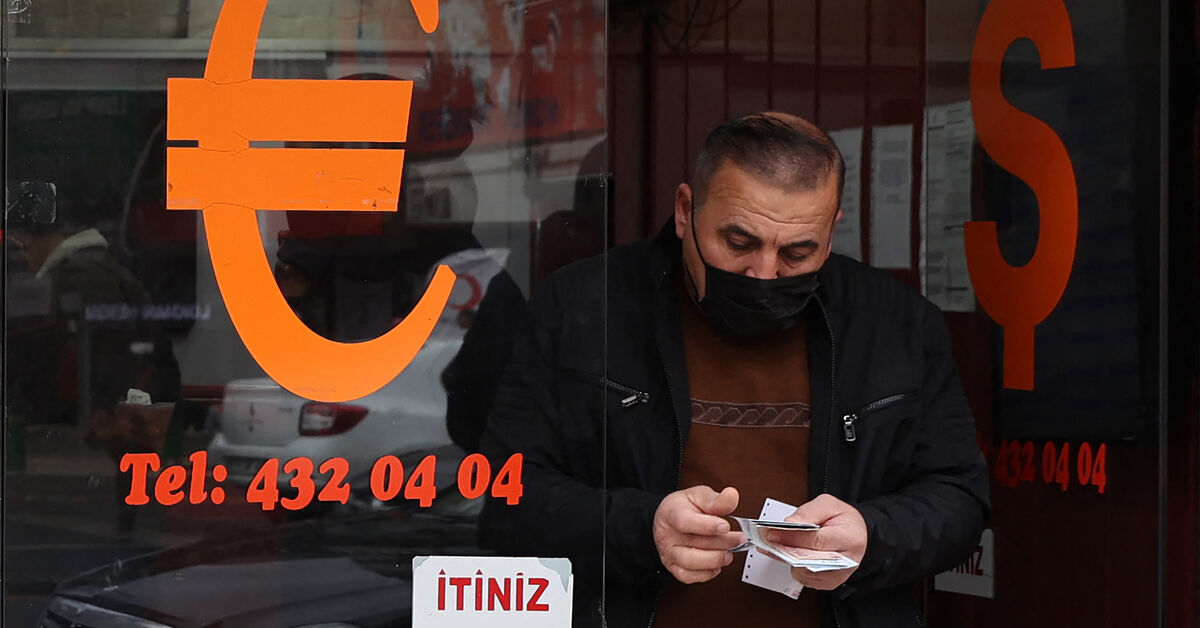ISTANBUL — The Turkish lira dropped to an all-time low this week in a sign that Ankara is loosening control of the foreign exchange market after the c
ISTANBUL — The Turkish lira dropped to an all-time low this week in a sign that Ankara is loosening control of the foreign exchange market after the country’s new economy chief Mehmet Simsek vowed a return to “rational ground” in managing the economy.
Raising interest rates is expected to be the next crucial step after President Recep Tayyip Erdogan replaced the Central Bank governor on Friday following his appointment of Simsek as treasury and finance minister last week. The moves are seen as a signal that Erdogan will step back from his unorthodox policies, widely blamed for Turkey’s foreign currency crunch and cost-of-living crisis, after winning reelection on May 28. Simsek, who had served as finance minister and deputy prime minister under Erdogan from 2009 to 2018, is highly regarded among international investors, whom Turkey badly needs to lure back to ease its economic woes.
Taking over the Central Bank is Hafize Gaye Erkan, the first woman to head the institution after serving as a senior executive at First Republic Bank and Goldman Sachs in the United States. Outgoing Sahap Kavcioglu, an Erdogan loyalist who heeded the president’s controversial rate-cutting drive, was appointed head of Turkey’s banking watchdog, prompting some observers to question how much autonomy Simsek will have in reshaping economic bodies and policies.
The necessary fixes, meanwhile, portend some side effects. For one, Turkey’s economy is heavily reliant on imported inputs, chief among them energy, and higher foreign exchange prices would mean rising costs and thus a surge in consumer inflation. And with the prospect of belt-tightening policies causing demand to plunge, the economy would begin to contract. This danger raises the specter of stagflation, economic stagnation accompanied by high inflation.
With an eye on the elections, Erdogan had pursued a populist, growth-focused policy since 2021. Despite soaring inflation, the Central Bank cut rates at the behest of Erdogan, who holds the unconventional view that high interest rates cause high inflation. The controversial policy fueled a rush for dollars, resulting in a full-blown currency crisis in December 2021. To halt the flight from the lira, Ankara introduced the so-called forex-protected deposit scheme, under which the treasury and the Central Bank compensate lira depositors for any losses they incur from the depreciation of the currency. The scheme contributed to keeping the lira relatively stable at an annual cost of some 200 billion liras ($8.7 billion) for the state. As of the end of May, the scheme held 2.5 trillion liras, amounting to a fourth of all deposits.
Meanwhile, the authorities heavily managed the foreign exchange market, with the Central Bank depleting its reserves to defend the lira. Ankara also secured multi-billion-dollar financial gestures from Gulf states and Russia, including the postponement of payments for Russian gas. The essential aim of all those moves was to keep the lira from plunging ahead of the elections to avoid a popular backlash.
By entrusting the economic management to Simsek, a former Merrill Lynch economist in London, Erdogan hopes to restore Ankara’s credibility and encourage disenchanted foreign investors to return to Turkey’s financial markets. The authorities have since scaled back their interventions on the foreign exchange market, letting the lira hit record lows. The currency has tumbled to about 23.5 versus the dollar, losing nearly 15% of its value since May 29.
How far the slump will go is hard to say, but the cheaper lira is expected to motivate exporters and the tourism sector while discouraging imports. Still, energy and other imperative imports will clearly fuel inflation, which stood at 39.6% in May.
Turkey’s risk premium — the cost of insuring exposure to Turkey’s debt via credit default swaps (CDS) — has fallen after the elections. As respected Turkish economist Hakan Kara notes, “Normally, the CDS risk increases when the Turkish lira depreciates. But the opposite has been happening recently. It’s because the hope of a return to rationality decreases the balance of payment risks.”
Ankara is eager to lure foreign funds into Turkish stocks and sovereign bonds. Such portfolio investments had peaked at $134 billion in 2012, but stood at a mere $24 billion in early June. The revival of foreign investments depends on improving the investment environment, including higher yields. Thus, all eyes will be on interest rates in the coming days.
At the Central Bank, senior managers and monetary policy-makers are expected to be replaced as well. While inflation hovers around 40%, the bank’s policy rate stands at an absurd 8.5%. A revamped bank is expected to deliver a rate hike of seven or eight percentage points initially and reassure markets that further increases will follow.
Ankara hopes to see the country’s risk premium drop further, which would facilitate external borrowing in larger amounts and at lower costs and ease the rollover of the existing debt.
A looming question here is how banks will withstand the slump of the lira and prospective rate hikes, given their accumulation of low-yielding treasury bonds as a result of stringent regulations. It is too early to speculate but Ankara is likely to intervene to keep the banks afloat. Another big problem is the growing burden that the forex-protected deposit scheme will put on the budget due to the depreciation of the lira.
www.al-monitor.com
